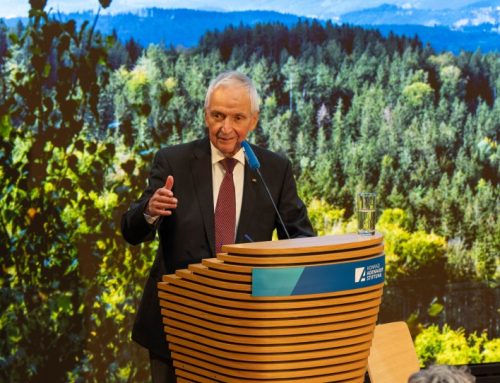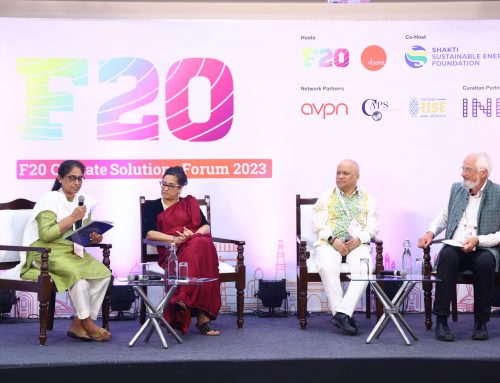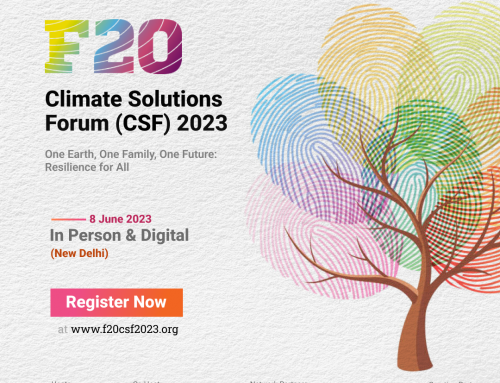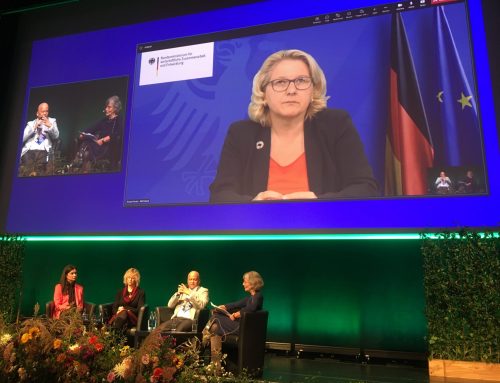F20 climate gathering of German Foundations (so called “Sinsheimer Climate Dialogue”) on February 8
 “Acting resolutely instead of merely reacting”[1] is the guiding principle of Germany holding the G7 Presidency in 2022. As a subgroup of the G20, the G7 has a huge potential in translating bold commitments into climate-effective policies and build momentum for a “Just Transition” in close resonance with the Indonesian G20 Presidency.
“Acting resolutely instead of merely reacting”[1] is the guiding principle of Germany holding the G7 Presidency in 2022. As a subgroup of the G20, the G7 has a huge potential in translating bold commitments into climate-effective policies and build momentum for a “Just Transition” in close resonance with the Indonesian G20 Presidency.
The Federal Government of Germany has just recently issued its official G7 programme “Progress towards an equitable world” outlining the policy priorities set out for this year’s G7 Presidency. It is very strong on climate and the new German government will not only assert a bold change of course in national politics, but will also have the opportunity to take a stand at the international level with the ensuing G7 Summit. From June 26-28, 2022 Heads of State and Government of the member countries will convene at the G7 Summit taking place in Schloss Elmau in Southern Germany.
In light of the urgency of the climate crisis, a multi-stakeholder approach is needed to accelerate actions on combating the most pressing global challenges. German foundations are in particular responsibility this year to support the “resolute acting” of the Federal Government of Germany by “being part of the solution”. Following the first “Sinsheimer Klima-Dialog” meeting in October 2021 – on February 8, 2022 a second climate gathering of German foundations took place jointly hosted by the Foundations Platform F20, the Robert Bosch Stiftung and the Klimastiftung für Bürger. The dialogue will continue to thrive on a follow up gathering in Munich scheduled for June 23, 2022 three days prior to the G7 summit in Elmau.
The fruitful virtual discussions on the key responsibilities of the G7 and the role of foundations in contributing to this process were highlighted by different voices from
Politics
- Jörg Kukies (German G7 + G20 Sherpa and State Secretary in the Chancellery)
- Jürgen Karl Zattler (Director-General for International development policy and Climate in the German Ministry for Economic Cooperation and Development (BMZ))
Academia
- Dr. Maja Göpel, Expert on Transformational Sciences
Philanthropy
- Dr. Michael Otto (Umweltstiftung Michael Otto, Stiftung KlimaWirtschaft)
- Bernd Welz (Klimastiftung für Bürger)
- Eduardo Noboa (BMW Foundation Herbert Quandt)
- Caio Koch-Weser (European Climate Foundation)
- Ilham A. Habibie (The Habibie Center Foundation, Jakarta)
- Ulrike Reichart (Network of German Community Foundations)
- Michael Beier (Heinz Sielmann Stiftung)
- Felicitas von Peter (Active Philanthropy)
- Max von Abendroth (Philanthropy Europe Association)
- Fernanda Wolff Metternich (Stiftung Gesunde Erde – Gesunde Menschen)
- Sylke Freudenthal (Veolia Foundation Stiftung)
- Friederike von Bünau (German Association of Foundations)
- Ottilie Bälz (Robert Bosch Stiftung)
- Klaus Milke (Stiftung Zukunftsfähigkeit, Foundations Platform F20)
- Stefan Schurig (Foundations Platform F20)

(Ottilie Bälz and Klaus Milke in conversation with
Dr. Michael Otto from the studio of Robert Bosch Stiftung)
The following conclusions can be highlighted from the insightful discussions:
- Building forward better: courageous, forward-oriented action and multi-solving strategies including a new understanding of assets are needed. All stakeholders, and particularly foundations, are asked to actively participate in this transformation.
- Joint Action for 1,5°C: International climate partnerships and new alliances, likewise to the Just Energy Transition Partnership with South Africa must be fostered.
- All hands on deck: Despite all the existing commitment, there was unanimity: even more foundations need to get involved “as part of the solution” and focus their foundational activities on their own positive climate contributions and transformative, intersectional cooperation.
Please find the German report here: https://stiftungzukunft.org/stiftungen-wollen-teil-der-loesung-sein/
[1] https://www.auswaertiges-amt.de/en/aussenpolitik/internationale-organisationen/g8-g20/g7-presidency/2504680








